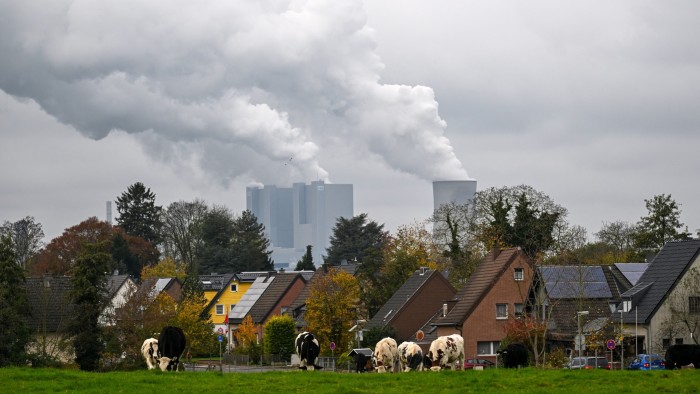Unlock the White House Watch newsletter for free
Your guide to what the 2024 US election means for Washington and the world
RWE is scaling back its €55bn bet on renewables in one of the clearest signs yet of how Donald Trump’s US presidential election victory threatens to further disrupt the shift to green energy.
The German company, one of Europe’s largest power producers, was already under intense pressure from shareholders, including activist investor Elliott, to rein in an aggressive push into renewables that has weighed on its share price.
Last year, it spent almost $7bn acquiring the Con Edison Clean Energy Business, which operates a portfolio of solar and wind projects in the US, where the Biden administration has sought to develop the country’s green energy industry through a series of tax breaks and subsidies.
Trump has vowed to end offshore wind in the US on “day one” of his presidency and eliminate the subsidies available to companies under Biden’s Inflation Reduction Act.
In a statement on Wednesday, RWE said: “Given the results of the US elections, the risks for offshore wind projects have increased.” The company also pointed to delays to European and UK ambitions to increase production of green hydrogen as a reason for revising its plans.
RWE intends to reduce its net investments in green projects to €7bn 2025-26, down from €10bn in 2024. Instead, the German company said it would repurchase up to €1.5bn of shares over a period of 18 months.
Shares in RWE jumped 7 per cent in response to the news, giving the Essen-based group a market capitalisation of €24bn.
Chief financial officer Michael Müller said the reductions may cause the company’s plans to invest €55bn in renewables by 2030, first announced last year, to “slip back”.
“There will probably be less [investment] in that period. But we will have to wait and see how things develop in the future,” he said.
Markus Krebber, RWE’s chief executive, said: “If the risk-return profile in certain areas changes temporarily, we reallocate the capital earmarked for this purpose accordingly.”
The change was welcomed by investors and analysts who for months have questioned RWE’s strategy of ploughing billions into renewables despite the uncertain financial returns.
“RWE has finally succumbed to the call of many shareholders and analysts for a more prudent capital allocation,” said Benedikt Kormaier of Enkraft Capital, which owns a small stake in RWE and had called for management to change its approach.
“The risks of RWE’s aggressive investment strategy in the US and on the hydrogen side have started to materialise. It is only prudent that the investment programme is now prudently reviewed and scaled back and capital distribution to shareholders is increased,” he added.
Deepa Venkateswaran, an analyst at Bernstein who has been critical of RWE’s strategy, said: “Management is finally listening to investors.”
She added: “Today’s announcements and especially the buyback could prove to be a turning point for rebuilding confidence in management.”
As well as growing its renewables business in the US, RWE has put money into projects including large offshore wind developments in the UK, Denmark, Germany and the Netherlands.
While Müller said the outlook for the Con Edison business remained positive, with rising demand for electricity, the incoming Republican administration “could delay specific projects”, citing the example of an offshore wind project near New York that is dependent on regulatory approvals that had yet to be granted.
The concern over the fate of the US offshore wind industry was echoed by German group Siemens Energy, which also has operations in America.
Chief executive Christian Bruch said he expected wind projects already under construction would be secure but admitted future projects in the offshore wind industry “may well be affected” by Trump’s election.
“What does it mean for tax credits [under the IRA]?” asked Bruch. “We’ll have to wait and see.”
The revamp of RWE’s plans came as it reported adjusted earnings before interest, taxes, depreciation and amortisation of €4bn in the first nine months of the year, down from €5.7bn in the same period in 2023.
Additional reporting by Ivan Levingston in London
https://www.ft.com/content/77475a4e-b7c4-454d-89a2-66492e472bcd


